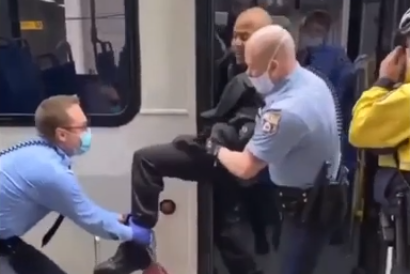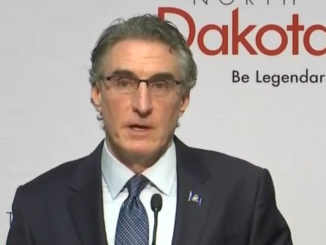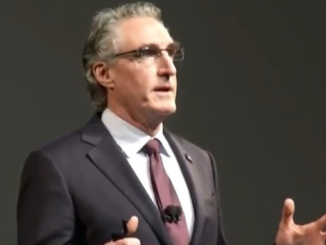
The following article was submitted to The Minuteman by John H. Wilson.
What is more important – your rights under the US Constitution, or following the arbitrary rules of your local and state governments? If you said the obvious answer, and believe your rights are paramount, then you don’t live in New York City, or Philadelphia, or the state of Kentucky.
All these locations, and more, have criminalized the exercise of your freedoms, in the name of fighting a pandemic.
Let there be no mistake – the state has the inherent power to protect the health and welfare of its citizens. As the US Supreme Court stated in the 1915 case Sligh v. Kirkwood, “the power of the State to… prevent the production within its borders of…such articles as would spread disease and pestilence, is well established.”
In their 2005 article, “Public Health Strategy and the Police Powers of the State,” published in the Public Health Reports, authors Jorge Galva, Christopher Atchison and Samuel Levey explore the historical basis for this ability; “the doctrine of state ‘police power’ was adopted in early colonial America from firmly established English common law principles mandating the limitation of private rights when needed for the preservation of the common good. It was one of the powers reserved by the states with the adoption of the federal Constitution and was limited only by the Constitution’s Supremacy Clause—which mandates preeminence of federal law in matters delegated to the federal government—and the individual rights protected in the subsequent Amendments.”
However, these authors also issued this strong warning; “the application of ‘police powers’ is not synonymous with criminal enforcement procedures; rather, this authority establishes the means by which communities may enforce civil self-protection rules. More specifically, public health police power allows the states to pass and enforce isolation and quarantine, health, and inspection laws to interrupt or prevent the spread of disease.”
These principles all presuppose the quarantine or separation of people who are ill. This is the first time that the state’s “police powers” are being used to confine the healthy as well as the sick.
At the end of March, in Lakewood, New Jersey, a couple was charged with Child Endangerment for holding a birthday party in violation of Governor Phil Murphy’s written warning not to throw parties. However, there is no evidence that anyone present at the party either knowingly or unknowingly had the coronavirus, or any other communicable disease.
Further, a review of the New Jersey statute for Endangering the Welfare of a Child (Section 2C24-4) deals in large part with the sexual exploitation of a child, or the abandonment, cruelty or neglect of a child.
It is well known that for conduct to be criminal, the person engaged in the conduct must have intent – that is, they mean for the consequences of their actions to occur. There is an exception for reckless behavior, which is defined as acting without regard for the safety of others.
Frankly, does it seem reasonable to charge parents for cruelty or neglect of their child for throwing that child a birthday party without proof that any guest is known to be ill? Does giving a party fit the legal definitions for either intentional or reckless conduct, in the absence of any evidence that the child, or anyone else at the party, was actually exposed to the coronavirus?
Obviously, the situation is different when someone knows they are sick, and intentionally exposes the public to their illness. In a well-known case, a man flew from JFK Airport in New York City to Palm Beach, Florida, knowing he had the coronavirus. While the man has not been charged with a crime to date, his conduct would surely fit the definition of “reckless endangerment” more closely than the NJ couple throwing a birthday party.
Recently in Philadelphia, a man was dragged off a transit service bus, because he was not wearing a face mask. According to the New York Post, wearing a face mask was a suggested guideline in Philadelphia, not an order. Yet, the police treated this man as if he were a public nuisance and dragged him from the bus at the request of the bus driver. Again, there was no proof or allegation that the man was a carrier of the coronavirus.
Then there is the father who was in a nearly empty field playing catch with his 6 year old daughter in Brighton City, Colorado, when police arrested him for failure to maintain “social distancing” rules. Ironically, he noted that none of the officers who participated in his arrest wore face masks, causing him to worry that these officers could have given him and his daughter the coronavirus.
There is only one solution to these overreaches by local and state authorities, drunk on their own power. People subject to such encounters must bring charges against every police officer, local and state official, and legislator responsible for these outrages against our liberties.
We must all take the example of the On Fire Christian Church of Louisville, Kentucky. When the Mayor of Louisville, Greg Fischer, sent his police force to harass Pastor Chuck Salvo’s parishioners as they sat in their cars for a “drive-in” church service, the Pastor hired a lawyer and sought an injunction. In granting the injunction, Federal Judge Justin Walker put it very simply – “On Holy Thursday, an American mayor criminalized the communal celebration of Easter….the mayor’s decision is stunning. And it is ‘beyond all reason’ ‘unconstitutional.’”
Do not let overbearing local and state authorities violate your rights. Be respectful, do not resist, take the ticket, even allow yourself to be arrested. But immediately after the incident (which hopefully, you or someone else has recorded) run, do not walk, to your lawyer’s office. Seek your remedies in the federal courts. And do not be afraid to publicize these sorts of incidents. Tyranny often cannot stand the light of day.
John H. Wilson is a former judge of the Criminal Court, New York City.
PLEASE LIKE & SHARE!
Sources:
- https://ballotpedia.org/John_H._Wilson
- https://www.law.cornell.edu/supremecourt/text/237/52
- https://www.ncbi.nlm.nih.gov/pmc/articles/PMC2569983/
- https://law.justia.com/codes/new-jersey/2014/title-2c/section-2c-24-4
- https://fox8.com/news/coronavirus/nj-couple-charged-with-child-endangerment-for-having-party-during-coronavirus-pandemic/
- https://abcnews.go.com/US/jetblue-plane-passenger-diagnosed-coronavirus-landing-florida/story?id=69553619
- https://nypost.com/video/man-dragged-off-bus-for-not-wearing-mask/
- https://www.yahoo.com/gma/former-police-officer-arrested-park-throwing-ball-daughter-103012178–abc-news-topstories.html
- https://firstliberty.org/wp-content/uploads/2020/04/OFCC-v-Fischer-Order-Granting-TRO.pdf





